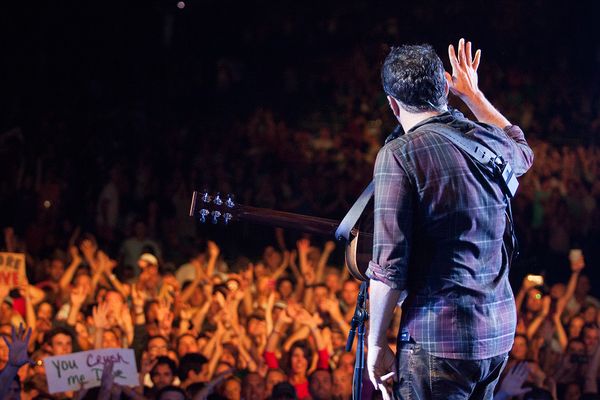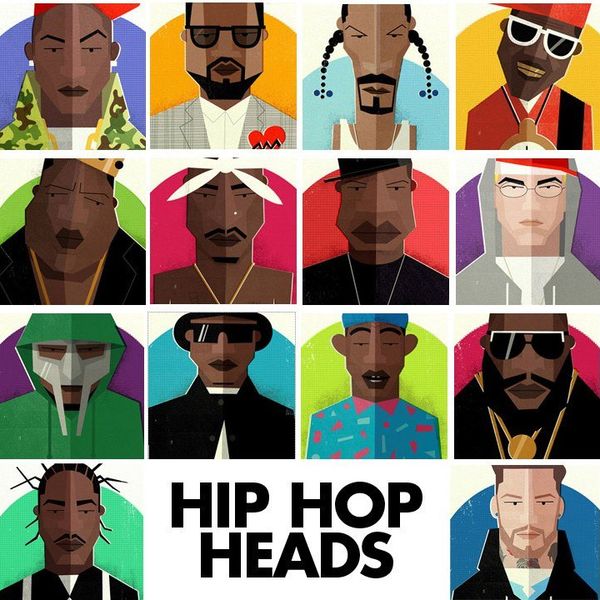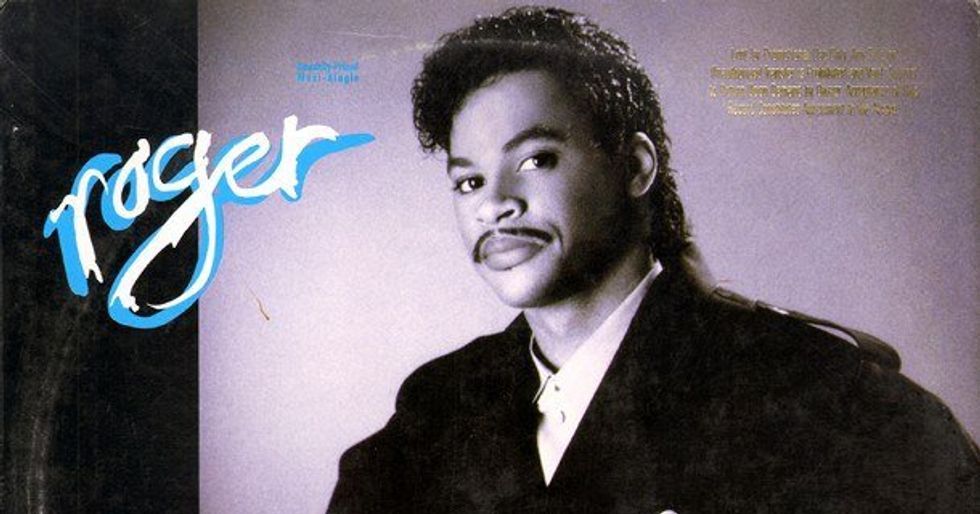Quick quiz for those that think they know West Coast Hip-Hop: who sings the chorus to “California Love”? If you had to think about the answer for any amount of time, you’re not alone. Most people think of “California Love” as a Tupac song, not only forgetting the production work by Dr. Dre but more importantly the robotized vocals provided by funk legend and forefather of the West Coast sound, Roger Troutman. Today is the 17th anniversary of his death.
Despite what one may think from his "California Love" lyrics, the artist that would rise to fame under the mononym Roger was neither from L.A., Compton nor good ol’ Watts. Rather, the man whose work would become one of the building blocks of California rap music was raised in Hamilton, Ohio. Roger started his music career in his early teens when he formed a funk band with his brothers Lester, Larry and Terry. Thanks to a 1978 chance encounter with Catfish Collins (brother of Bootsy, the bassist for George Clinton’s pioneering funk acts Parliament and Funkadelic), the brothers were able to recruit Bootsy as a producer on their 1980 self-titled debut album “Zapp”. The album was a modest success, with the single “More Bounce to the Ounce” climbing to number two on the R&B charts. Unlike their mentor George Clinton, Zapp’s music was less abstract and more pop-oriented. They left out all Clintonesque eccentricities and replaced them with velvety Lothario grooves. On “More Bounce,” Roger laid his smooth, computerized vocals over a vivacious bass line and dancing synth stabs. The track was a nine minute long dance jam that found particular success among the California lowrider subculture. In the early ‘80s, muscle car enthusiasts from Sacramento to San Diego would cruise through their cities blasting Zapp records, unintentionally influencing the young neighborhood kids who would eventually grow up to pioneer West Coast gangsta rap. Rapper Ice Cube remembers watching break dancers poplock to “More Bounce to the Ounce” as an 11 year old: “ . . . I think from that visual, from seeing that, it was my first introduction into hip hop. Period. I didn’t know nothing about nothing. I hadn’t heard ‘Rapper’s Delight’ yet. It was the first thing that was really fly to me.”
Zapp’s debut album went gold and was followed by a second and third that were certified gold as well. The Troutman brothers were undeniably good musicians, but it was Roger’s signature use of the talk box that really gave Zapp their claim to fame. The talk box is an instrument consisting of a small mechanized box attached to a plastic tube. By connecting the talk box along with a guitar or keyboard to an amplifier, the user is able to direct an instrument’s notes into his or her mouth. The musician can then sing or talk in order to transform the sound waves into speech or song. Here Roger uses the instrument on one of Zapp’s best known tracks, “Computer Love”:
Banking on Zapp’s success, Roger released a slew of platinum selling solo projects, beginning with 1981’s “The Many Facets of Roger”. The album contained a cover of “I Heard it Through the Grapevine”, which reached number one on the R&B charts thanks to Roger’s distinctive robotic spin on the classic song. Elsewhere, “I Want to be Your Man” from Roger’s third album “Unlimited!” was a major crossover success, finding a spot at number three on the pop charts.
As the ‘80s came to a close both Zapp and Roger’s recording careers began to wind down. Funk wasn’t selling anymore, ironically due in part to the new popularity of Hip-Hop music, much of which was heavily influenced by Roger. Dr. Dre’s G-Funk subgenre of gangsta rap, widely imitated by other West Coast artists, was built on a foundation of George Clinton samples, Ohio Players style whiney synths and the smooth mood of Zapp and Roger’s biggest hits. In 1996, Dr. Dre recruited Roger to reprise lyrics he wrote in 1982 for the song “West Coast Poplock” by little known funk artist Ronnie Hudson.
The chorus for “West Coast Poplock”, sung on the original by Ronnie Hudson, was recycled as the chorus for “California Love,” this time sung by Roger in his trademark android voice. “California Love” proved much more popular than its predecessor. It was certified double platinum less than a month after its release and is widely considered an all time Hip-Hop classic.
Just when it seemed a comeback for Roger was imminent, the funk innovator was shot to death by his brother Larry behind their Ohio recording studio on April 25th, 1999. Larry killed himself with the same gun shortly afterward. The strained nature of Jerry's business relationship with Roger, which Roger was trying to bring to an end, was cited as a possible motive for the murder-suicide. One of the saddest aspects of Roger’s death is that he was taken from the world before he was able to share his music with the next generation of listeners. Today’s music fans, while well acquainted with Dr. Dre and Tupac Shakur, know little of the artist who did so much to inspire their music. Meanwhile the rise in popularity of auto-tune serves as yet another sad reminder that Roger Troutman's influence on American popular music goes largely unappreciated. We’ll miss you, Roger. You’re talk boxing and poplocking up in heaven now.




















